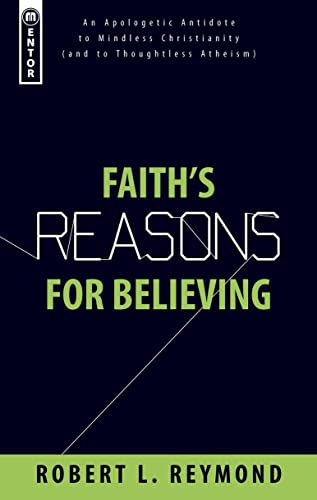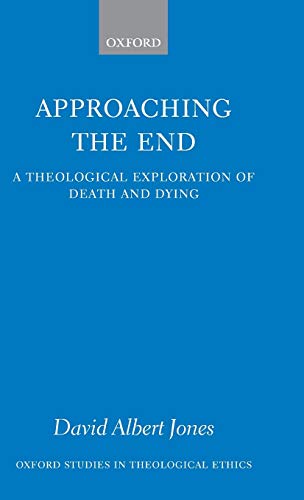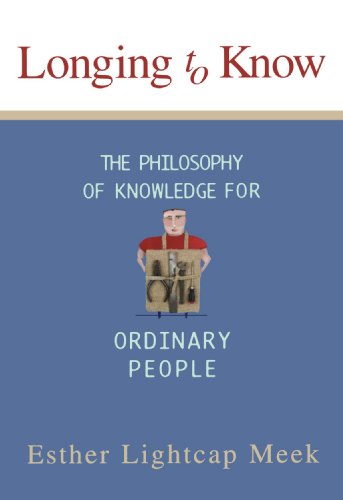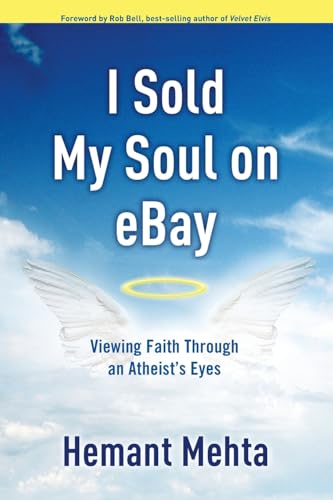Faith’s Reasons for Believing: An Apologetic Antidote to Mindless Christianity (and to Thoughtless Atheism)
Written by Robert L. Reymond Reviewed By James AndersonQuestion: What do you get if you cross Gordon Clark’s apologetic with Cornelius Van Til’s apologetic and sprinkle it liberally (so to speak) with J. Gresham Machen’s historical evidences? Answer: Something like the case for the Christian faith recommended by Robert Reymond in Faith’s Reasons for Believing.
The subtitle gives a fair impression of its purpose and tone: ‘An Apologetic Antidote to Mindless Christianity (and to Thoughtless Atheism)’. Reymond’s goal is to counter not only the attacks of ‘militant atheists’ like Richard Dawkins and Sam Harris, but also the ‘mindless Christianity’ of believers who are unable or unwilling to offer any reasons for the faith they profess.
The book is adapted from lecture material originally prepared for a seminary course in apologetics and is therefore pitched at that level. Reymond identifies himself with the Reformed presuppositionalist school of apologetics, and the title of the book is designed to reflect that approach. According to this view, our method in apologetics should not be to start from a position of non-faith (i.e., doubt or suspension of belief) and then to use our reasoning, fuelled with empirical data, to construct a position of faith. Rather, we should unashamedly start from the position of the faith we already profess, and reasoning in a manner consistent with that faith, we should explain why it makes good sense to believe as we do.
The opening chapter defines Christian apologetics, reviews its biblical basis, introduces some of the major issues in apologetic method, and summarizes four different ‘apologetic systems’ (evidentialism, presuppositionalism, experientialism, and autonomous humanism). A passionate defense of Christian theology as an intellectual discipline follows in chapter 2, where Reymond gives five compelling reasons for Christians to engage in theology.
The third chapter is the most important of the book, given Reymond’s view of the starting point and foundation for defending the faith. His argument for the inspiration of Scripture closely follows that of Gordon Clark and boils down to this: the Bible claims to be God’s Word, and no one has proven its claim to be false; therefore, it is reasonable to believe that the Bible is God’s Word.
In the following four chapters, Reymond defends the historicity of the bodily resurrection and ascension of Christ, the virgin birth, biblical miracles (particularly those of Jesus) and the supernatural conversion of Paul. Switching gears, chapter 8 returns the focus to questions of apologetic method with a critique of the evidentialist approaches of B. B. Warfield, R. C. Sproul, and E. J. Carnell. Reymond’s main criticism is that these apologists have adopted a method whose assumptions about human knowledge and reason are at odds with their own Reformed theological convictions. Chapter 9 continues in similar vein with a critique of the traditional ‘proofs’ of God’s existence.
Chapters 10 and 11 set out what Reymond understands to be the Christian view of knowledge, meaning, and truth. The Bible as God’s Word is the only sure foundation for human knowledge and personal significance. Truth is essentially the correspondence between God’s thoughts and our thoughts.
The final two chapters take a more practical turn. Chapter 12 argues that all secular ethical systems have proven to be failures; only biblical theism can explain why objective moral principles exist at all and why we ought to be good. Chapter 13 contends that Paul’s ‘worldview evangelism’ at Athens remains as relevant and effective for reaching biblically illiterate unbelievers (including ‘postmoderns’) as it was in the first century.
Faith’s Reasons for Believing is a lengthy book with copious footnotes, and it covers a lot of ground. It contains some extremely useful and cogently argued material, such as its treatments of the Bible’s witness to its own inspiration and inerrancy, the formation of the New Testament canon, Isaiah’s prophecy of the virgin birth, the theological significance of Christ’s resurrection and ascension, and the apologetic significance of Paul’s conversion. Reymond’s uncompromising commitment to the Bible as God’s Word and his reliance on careful biblical exegesis puts some other apologetics textbooks to shame.
Nevertheless, the book is not without its shortcomings and inconsistencies. I will mention only three here. In the first place, many readers will judge Reymond’s central argument for the Christian faith to be unpersuasive and circular, despite his insistence to the contrary. His defense of the Bible’s claim to be God’s Word is solid enough, but very little positive argument is offered to bridge the logical gap between that claim and the conclusion (that the Bible is God’s Word). Ironically, the sort of external considerations to which Reymond appeals (somewhat half-heartedly, one senses) are precisely those to which evidentialists routinely appeal, e.g., the general credibility of the Gospel writers, the moral character of Jesus, and the historical fulfillment of prophecy.
Second, it’s remarkable that a book like this would include no discussion of the two most common objections wielded by today’s skeptics against the reasonableness of the Christian faith: the problem of evil and the problem of religious diversity. A more substantial discussion of scientific objections would also have been welcome.
Third, I suspect those who locate themselves in the ‘evidentialist’ or ‘classical’ schools of apologetics (Reformed or otherwise) will complain that they have not been fairly represented at points and that the author has not considered the most refined versions of their arguments (e.g., for the existence of God). At times one detects double standards at play, for it isn’t always clear that Reymond’s own apologetic avoids the criticisms he levels at others. In reality, I suspect there is less distance between Reymond and, say, Sproul than his vigorous objections would suggest.
Faith’s Reasons for Believing has many useful, insightful, and provocative things to say about both the biblical foundations for apologetics and the biblical examples of apologetics. One will learn from it almost as much about good exegetical theology as about the defense of the faith. In light of the book’s length, style, and choice of topics, I would not consider it a suitable introduction for lay readers who are unfamiliar with the broad landscape of Christian apologetics; and as I have indicated, there are some conspicuous holes in Reymond’s overall case for Christianity. But I have no doubt that any student with a particular interest in apologetics will find much of benefit in this book.
James Anderson
James Anderson
Reformed Theological Seminary
Charlotte, North Carolina, USA
Other Articles in this Issue
Though his primary concern was how to persuade people from diverse backgrounds to embrace the gospel of Jesus Christ (1 Cor 9:12, 23), Paul, nonetheless, embodies a principle common to all who would provide leadership to a community comprised of a multiplicitous collection of rigid truth claims and behaviors...
The Ethnic Enemy—No Greek or Jew . . . Barbarian, Scythian: The Gospel and Ethnic Difference
by Keith FerdinandoWhatever 'globalisation' may be, it has been accompanied by insistent and sometimes violent affirmations of ethnic identity...
Despite a small flurry of attention over the past decade, Adolf Schlatter (1852–1938), Tübingen professor of New Testament and author of more than 440 written works, remains one of the most neglected yet illuminating theological voices of the past one hundred years...
Commentators have customarily interpreted Phil 2:12 as a reference to "working out" one's personal salvation...
Salvation History, Chronology, and Crisis:1 A Problem with Inclusivist Theology of Religions, Part 1
by Adam SparksA fundamental requirement in an inclusivist understanding of the relationship between Christianity and other religions is evidence of God's salvific activity outside of any knowledge of Christ...






